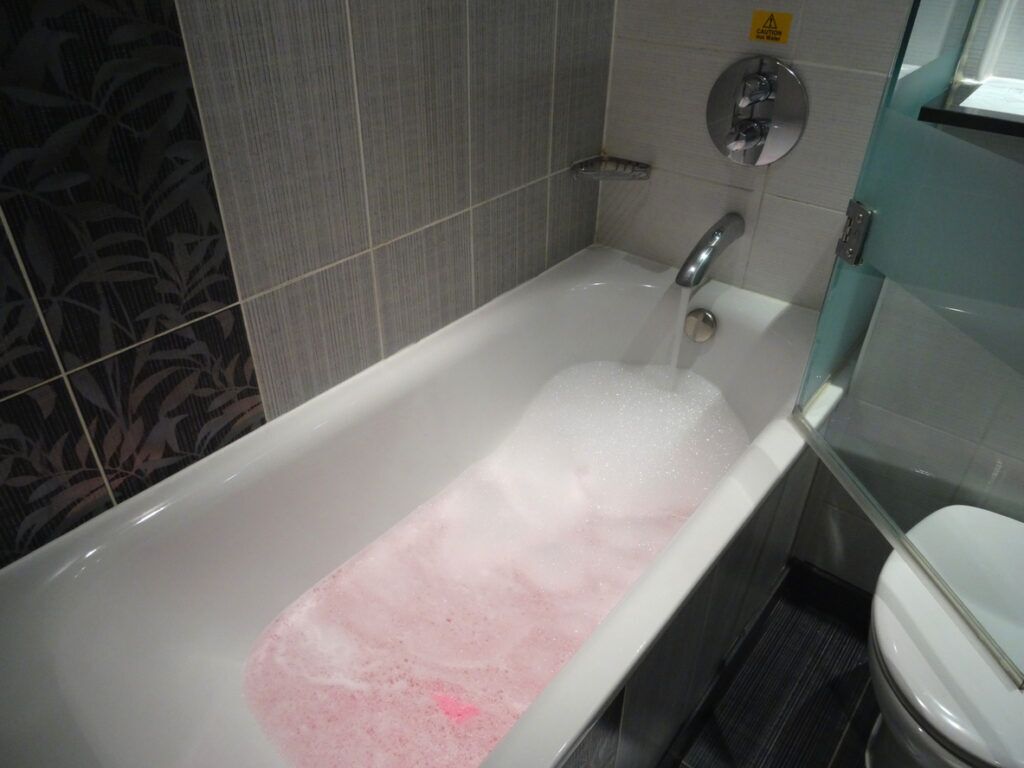The Comprehensive Guide: Effluent Rising Through the Bathtub
The Comprehensive Guide: Effluent Rising Through the Bathtub
Blog Article
Are you currently searching for ideas concerning Why sewage is coming up through your bathtub?

Sewer backup in the tub can be a distressing and unhygienic problem for any type of home owner. Not only is it inconvenient, however it additionally poses major wellness threats and indicates underlying issues with the plumbing system. Understanding why sewage is showing up through the tub is essential for taking appropriate activity to resolve the problem properly.
Introduction to the Concern
Comprehending the Issue
When sewer starts backing up into the tub, it's a clear indicator of a trouble with the drainage system. The wastewater that ought to be moving away from your home is instead finding its way back right into your space, which can cause significant damage and health hazards.
Possible Reasons
Several aspects can add to sewer backup in the bath tub. From obstructions in the sewer line to concerns with the plumbing facilities, recognizing the source is necessary for finding a solution.
Usual Reasons for Sewer Back-up
Clogs in the Sewer Line
Among the most usual sources of sewage back-up is an obstruction in the sewage system line. This can happen as a result of the accumulation of particles, grease, or foreign things in the pipes, stopping appropriate flow and triggering sewer to back up right into your bath tub.
Tree Root Intrusion
Tree roots seeking wetness and nutrients can infiltrate sewer lines via small cracks or joints. Over time, these origins can grow and increase, causing substantial damage to the pipes and bring about sewer back-up concerns.
Aging Framework
Older homes may have outdated plumbing systems that are a lot more prone to rust, cracks, and damage. As pipelines age, they come to be extra susceptible to leaks and clogs, increasing the possibility of sewer back-up occurrences.
Heavy Rainfall or Flooding
During durations of heavy rainfall or flooding, the drain system might come to be overloaded with excess water, causing backups and overflows. This can result in sewage supporting into tubs and various other components inside the home.
Wellness Threats Associated with Sewage Backup
Contamination of Water System
Sewer back-up can pollute the water in your house, posturing a significant wellness risk to you and your family members. Direct exposure to infected water can cause gastrointestinal concerns, skin infections, and various other diseases.
Spread of Disease
Sewage consists of damaging germs, viruses, and bloodsuckers that can create a range of illness, consisting of liver disease, cholera, and gastroenteritis. Entering into contact with sewage or contaminated surfaces puts you in danger of infection.
Mold Growth
Moisture from sewage backup can develop perfect conditions for mold development in your home. Mold spores can exacerbate respiratory troubles and trigger allergic reactions in sensitive people, making punctual cleanup important.
Indications of Sewer Back-up
Foul Odors
Unpleasant odors originating from drains pipes or fixtures, specifically in the bathroom, may suggest sewer back-up concerns. These smells are often solid and relentless, signifying a trouble that requires prompt focus.
Slow Draining Fixtures
Tubs, sinks, and commodes that drain pipes slowly or not at all could be experiencing sewer backup. If multiple fixtures are influenced at the same time, it's most likely that the concern stems from a common point, such as the primary sewage system line.
Gurgling Sounds
Strange gurgling or gurgling sounds originating from drains pipes when water is running elsewhere in the house are indicative of air trapped in the plumbing system. This air build-up can arise from sewer back-up and must be checked out promptly.
Immediate Actions to Take
Switching Off Water Supply
In case of sewer back-up, it's important to turn off the water system to prevent additional contamination and damages. Situate the main water shutoff valve in your house and closed it off until the problem can be resolved.
Calling a Professional Plumber
Taking care of sewer backup is not a DIY work. Call a certified plumber with experience in taking care of sewage-related issues to assess the scenario and perform needed repair services or cleanups.
Avoiding Contact with Infected Water
Until the sewer backup is settled, avoid contact with polluted water to stop the spread of microorganisms and pathogens. Put on protective gear if you should be in the afflicted location and clean your hands extensively later.
Safety nets
Normal Upkeep of Sewage System Lines
Arrange routine assessments and maintenance of your drain lines to identify and address potential concerns prior to they intensify into significant problems. This can include cleaning out debris, evaluating for tree root breach, and repairing any kind of broken pipelines.
Installing Backwater Shutoffs
Think about mounting backwater shutoffs in your plumbing system to prevent sewage from flowing back right into your home during periods of heavy rainfall or flooding. These valves immediately close when water draws back up, shielding your residential or commercial property from contamination.
Appropriate Disposal of House Waste
Prevent flushing anything aside from toilet tissue and human waste down the toilet to avoid obstructions and obstructions in the drain line. Dispose of oil, oil, and other family chemicals correctly to lessen the threat of plumbing problems.
Cleaning Up After Sewage Backup
Sanitation Procedures
Extensively decontaminate and sanitize affected areas after sewage back-up to eliminate dangerous bacteria and avoid mold and mildew development. Usage appropriate cleansing products and protective gear to make sure risk-free and reliable cleaning.
Repair of Affected Locations
Repair any damages to flooring, walls, or fixtures brought on by sewer back-up. Relying on the degree of the damage, you may need to replace carpeting, drywall, or other products to restore your home to its pre-loss problem.
Why is There Sewage Coming Up Through the Bathtub
Sewage in your bathtub is a major problem that can make you want to abandon the bathroom for good. You don’t have to. However, it is important to identify the source of the issue and take the necessary steps to resolve it in order to avoid any health risks and property damage. In this article, we will discuss what could be causing sewage to back up through your bathtub so you can take action quickly and effectively.
The Main Reason For Sewage Backup in The Bathtub
All the sinks and toilets in your home connect to different pipes that lead to the main sewer line. The sewer line then connects to the municipal sewer system. This connection works seamlessly on a daily basis, but there can sometimes be a problem with the main sewer line.
The most common cause of sewage backup is a clogged or blocked main sewer line. The main sewer line can be clogged due to the accumulation of debris, tree roots or grease buildup, or other materials. Another possible cause is a collapsed pipe. When this happens, your toilets and sinks won’t be able to drain properly. This is when sewage starts backing up through the bathtub. If the problem has been occurring for some time now, it might be time to consult with a plumber as there may be more severe damage that needs fixing.
How Can You Tell if it’s Coming From Your Sewer Line?
If you’re experiencing a sewage backup in your bathtub, then you can use a few simple methods to determine if it is coming from the main sewer line. First, try to unclog the tub drain with a plunger or an auger and see if that helps. If not, then inspect all of the drains in your house and check if there is any blockage in them. If some of the other drains are not working fine, then it’s likely the problem is with your main sewer line.
Common Signs of a Clogged Main Sewer Line
If you suspect that your main sewer line is blocked, then there are a few common signs to look out for. Frequent clogs in your home are a sure sign of a clogged sewer line. You can also check for slow drainage from all the plumbing fixtures.
Slow Drains
If you notice that it takes longer for your sinks and toilets to drain, then this could be a sign of a clogged main sewer line.
Frequent Clogs
Another common sign is that your drains or toilets become clogged almost all of the time. If this happens, then it could be a sign that the main sewer line is blocked.
Water Backup
Do you notice water or sewage coming back up from any of the drains in your home? If your answer is yes, you may have a clogged main sewer line.
Sinkholes
If you’ve noticed sinkholes in your yard or overflowing sewage from the ground, you may be facing a blocked sewer line issue.
Your Shower or Sink Makes Gurgling Noises
Have you noticed gurgling noises coming from your sink or shower lately? These are typically signs of a blocked sewer line and should be checked out immediately.
How to Prevent a Main Sewer Line Clog
Once you’ve identified that your main sewer line is clogged, it’s important to take steps to prevent it from happening again. The best way to do this is to avoid putting any solid material that can clog the drain, such as grease and other debris. You should also be mindful of what you flush down your toilet. In addition, you should schedule regular maintenance for your main sewer line. This will help keep it clear and free from clogs or backups.
What Should You do if You Notice Sewage Backing up Through The Bathtub?
If you’ve noticed sewage backing up through the bathtub, then it is important to call a professional plumber immediately. A plumber can inspect the situation and determine what the cause is, such as a blocked main sewer line. They will also be able to advise you on how best to fix the issue. In some cases, a simple drain cleaning may be all that is needed.
However, if the blockage is severe, then your plumber may need to use more advanced methods to clear the blockage.
No matter what, it is important to always call a professional plumber if you experience any kind of sewage backup. They will be able to assess the situation and provide you with a solution that is best for your home.
https://baylorinc.com/blog/why-is-there-sewage-coming-up-through-the-bathtub/

I hope you liked our post on . Thank you so much for finding the time to read through our posting. Enjoyed our piece? Please share it. Help someone else check it out. We treasure reading our article about What to Do if Sewage Starts Coming Up Through Your Bathtub.
Check This Out
Report this page